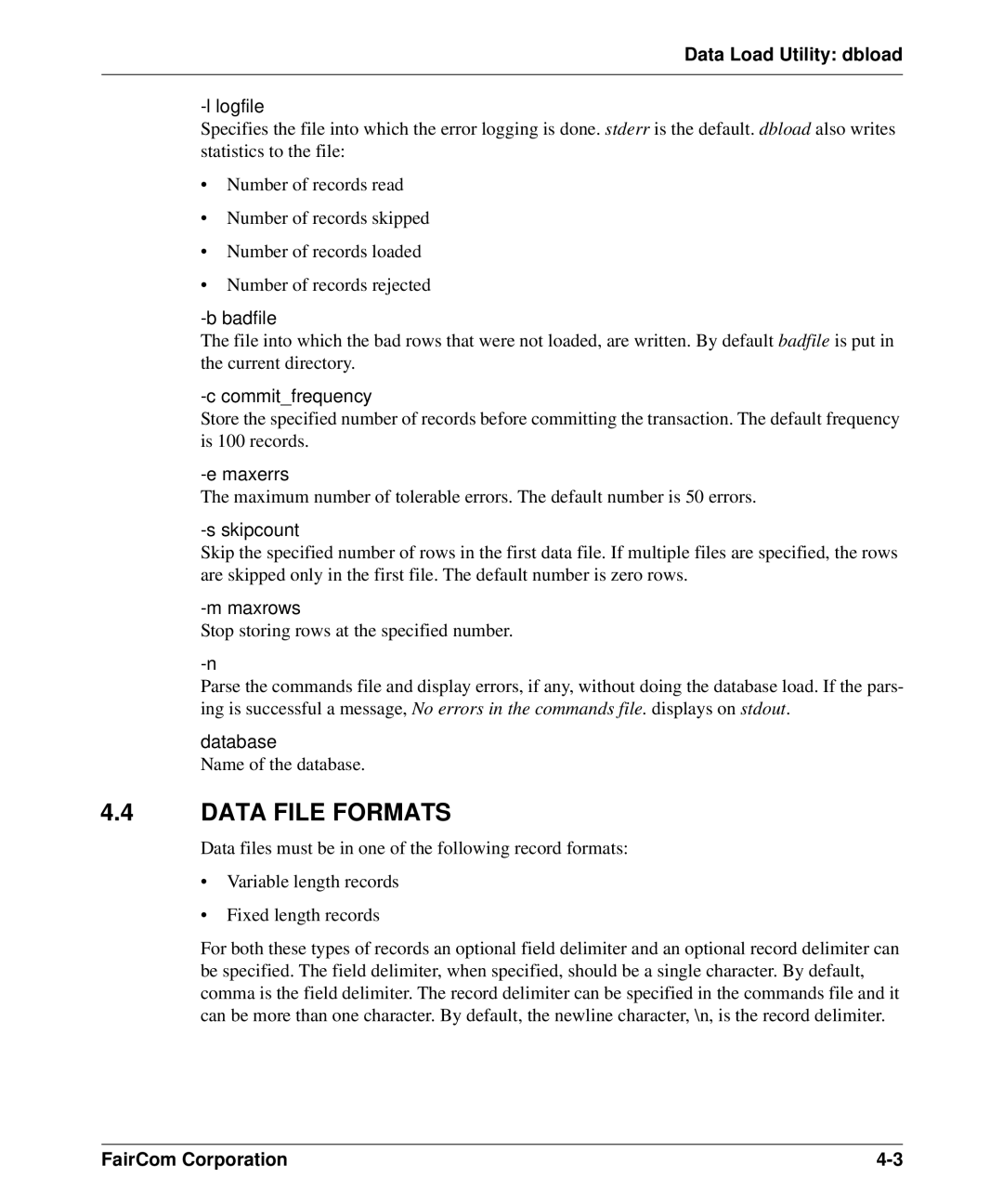
Data Load Utility: dbload
-l logfile
Specifies the file into which the error logging is done. stderr is the default. dbload also writes statistics to the file:
•Number of records read
•Number of records skipped
•Number of records loaded
•Number of records rejected
-b badfile
The file into which the bad rows that were not loaded, are written. By default badfile is put in the current directory.
-c commit_frequency
Store the specified number of records before committing the transaction. The default frequency is 100 records.
The maximum number of tolerable errors. The default number is 50 errors.
-s skipcount
Skip the specified number of rows in the first data file. If multiple files are specified, the rows are skipped only in the first file. The default number is zero rows.
-m maxrows
Stop storing rows at the specified number.
Parse the commands file and display errors, if any, without doing the database load. If the pars- ing is successful a message, No errors in the commands file. displays on stdout.
database
Name of the database.
4.4DATA FILE FORMATS
Data files must be in one of the following record formats:
•Variable length records
•Fixed length records
For both these types of records an optional field delimiter and an optional record delimiter can be specified. The field delimiter, when specified, should be a single character. By default, comma is the field delimiter. The record delimiter can be specified in the commands file and it can be more than one character. By default, the newline character, \n, is the record delimiter.
FairCom Corporation |
